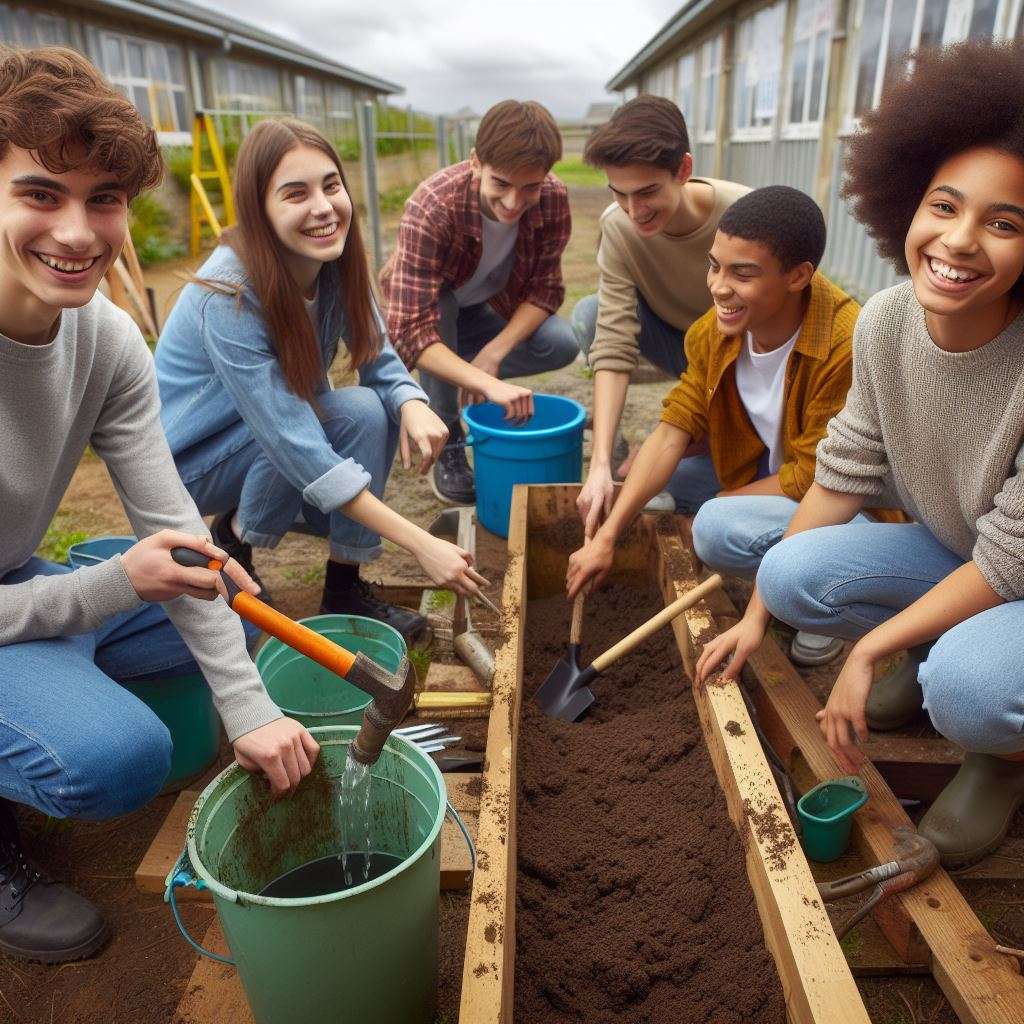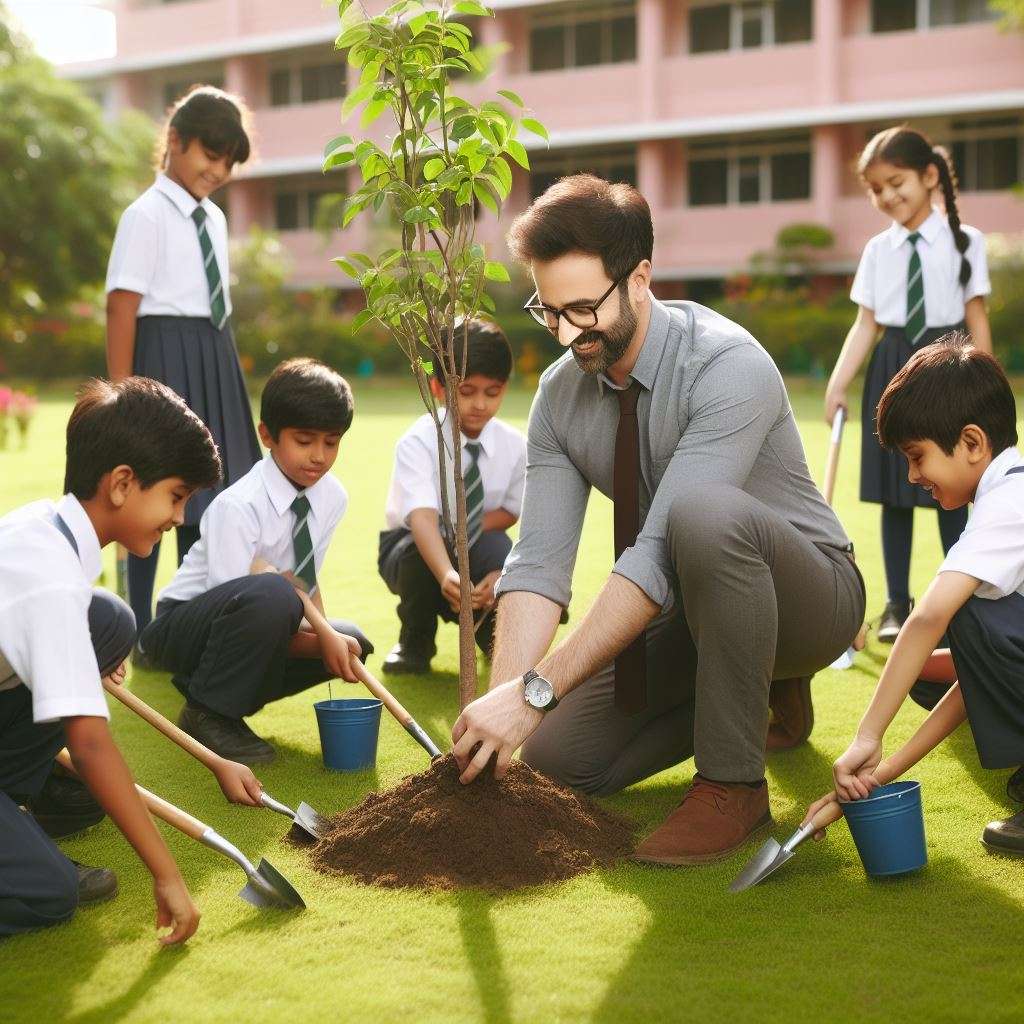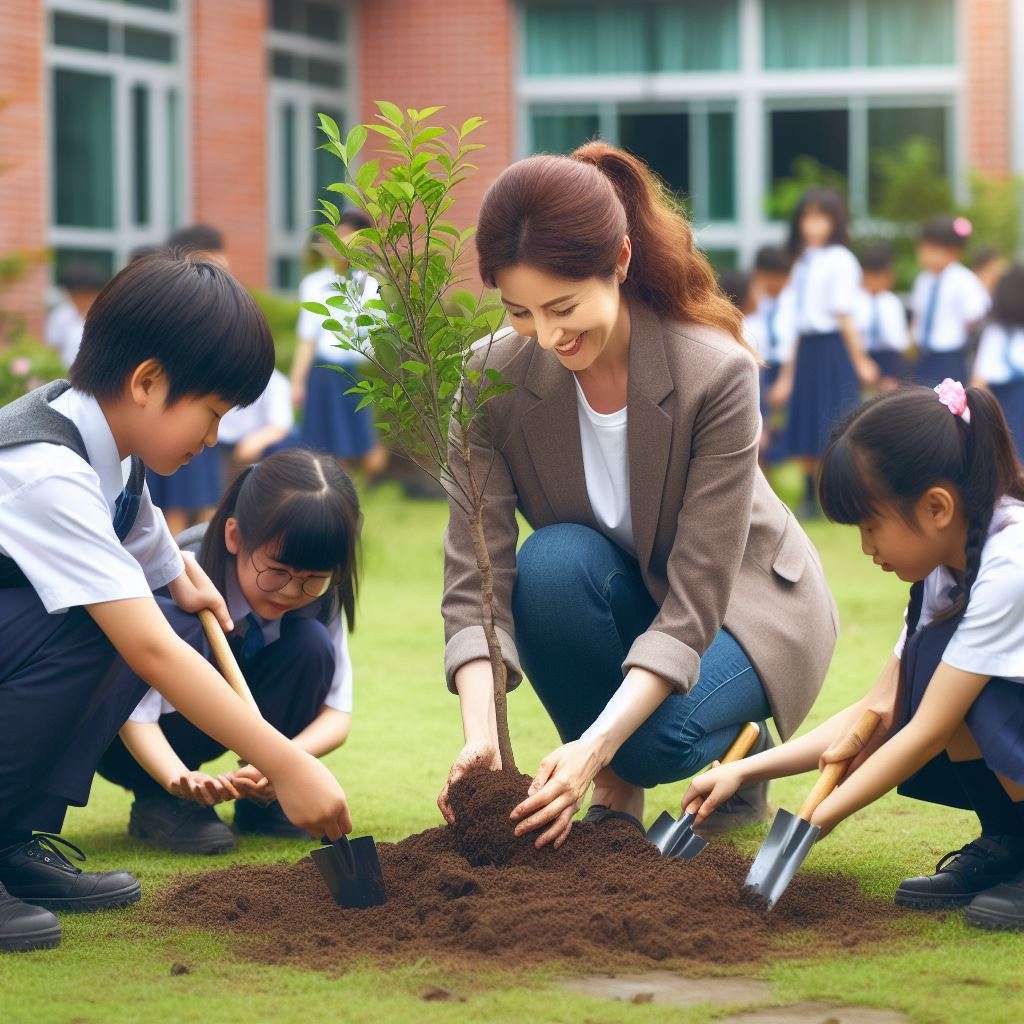Introduction:

Envision a classroom that bursts with life, where curious learners explore the soil, touch the plants, and care for the creatures. In a world where environmental crises threaten our existence, educators rise as vital agents of change. They’re not just imparting facts from books; they’re inspiring a generation to become guardians of sustainability. Students engage in hands-on projects that allow them to witness the impact of their actions on the world around them. They learn to reduce waste, conserve resources, and advocate for the protection of our planet.
Through experiential learning, they develop a deep connection to nature and a sense of responsibility for its preservation. In this classroom, the seeds of environmental stewardship are sown, nurturing a future where sustainability is not just a choice, but a way of life.
The Growing Need for Environmental Champions:
The world confronts daunting environmental challenges—shrinking ice caps, vanishing forests, suffocating seas. In response, the demand for informed citizens and active stewards of the Earth has never been more critical. Educators are at the front lines, molding the values and actions that will shape our planet’s destiny. Educators have a unique opportunity to instill a sense of responsibility and care for the environment in the next generation. By integrating environmental education into their curriculum, they can empower students to become advocates for change and to make sustainable choices in their daily lives. The role of educators in shaping the future of our planet cannot be overstated, and their dedication to fostering environmental literacy is more important now than ever before.
From Textbooks to Treehouses: Reimagining Education:
Education is transforming from conventional, paper-based learning to experiential immersion. Classrooms now host gardens, hives, and sanctuaries, connecting students deeply with the natural world. Picture students sowing seeds, crafting posters for environmental causes, and engaging with hands-on projects that foster a richer understanding of sustainability. Students are no longer confined to textbooks and lectures but are instead encouraged to explore, experiment, and interact with their surroundings. This shift towards experiential learning not only enhances their academic knowledge but also instills in them a sense of responsibility towards the environment. As they witness the impact of their actions firsthand, they develop a deeper appreciation for the interconnectedness of all living things and the importance of preserving the natural world for future generations.

Hands-on Learning: Cultivating Green Thumbs and Eco-Conscious Minds:
Imagine students eagerly composting, collecting rainwater, and constructing solar ovens. These captivating projects not only teach useful skills but also nurture a sense of awareness and responsibility. Through these experiences, students observe nature’s interdependence, grasp consequences, and imagine the potential for positive change. Students also develop a deeper appreciation for the environment and its resources, as well as a greater understanding of the impact of human actions on the planet. As they work together on these eco-friendly initiatives, they also learn the value of collaboration and teamwork, fostering a sense of community and shared purpose. These hands-on activities not only shape responsible and environmentally conscious individuals but also inspire them to become advocates for sustainable living in their communities and beyond.
Beyond the Classroom Walls: Building Bridges to Communities:
Students don’t just keep their newfound knowledge within classroom boundaries. They become ambassadors, spreading awareness and enthusiasm to families and communities. School gardens flourish, not just for learning but also to support local food security. Meanwhile, students lead influential environmental awareness campaigns that resonate far beyond school premises. Students take their passion for environmental sustainability beyond the classroom, organizing community clean-up events and advocating for policy changes at the local and even national levels. Their dedication and drive inspire others to join the movement, creating a ripple effect of positive change that extends far beyond their immediate surroundings. As a result, the impact of their efforts is felt not only in their community but also in the larger global conversation about environmental stewardship.

The Ripple Effect: Transforming Mindsets, One Seed at a Time:
Educators are the gardeners of tomorrow, tending to young minds that will inherit our planet. The seeds they plant today are the hope of a sustainable future. As students mature into environmentally conscious adults, they make informed decisions, advocate for change, and actively participate in building a greener world.In their classrooms, educators cultivate not just knowledge, but also empathy, resilience, and a sense of responsibility towards the environment. By nurturing these qualities, they empower students to become stewards of the earth, ensuring that the legacy they leave behind is one of environmental stewardship and sustainable living.
Conclusion:
Educators play a crucial role in nurturing a love for nature, fostering critical thinking, and empowering students to take action. By sowing the seeds of change today, they cultivate a hopeful future where every classroom is a seedbed for sustainable development. In doing so, educators not only impart knowledge but also instill a sense of responsibility and stewardship for the environment. Through hands-on experiences, engaging discussions, and exposure to real-world issues, they equip students with the tools and mindset needed to become active participants in creating a more sustainable world. Educators inspire students to appreciate the interconnectedness of all living things and the delicate balance of ecosystems. They encourage curiosity, exploration, and a deep understanding of the natural world. Through their guidance, students learn to value and respect the environment, paving the way for a generation that is committed to preserving our planet for future generations.
Call to Action:
Let’s celebrate and support educators championing sustainable living. Promote eco-friendly practices in schools and share your time and expertise. Together, let’s empower the next generation to be the change they wish to see. Only together can we cultivate a future where every classroom grows the seeds of a sustainable tomorrow. Let’s encourage schools to adopt renewable energy sources, reduce waste, and incorporate environmental education into their curriculum. By fostering a culture of sustainability, we can inspire young minds to become stewards of the planet. Together, let’s build a network of environmentally conscious educators who can guide students toward a more sustainable future.
